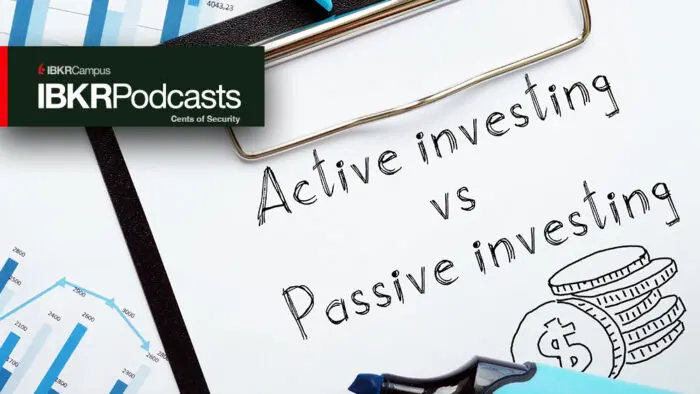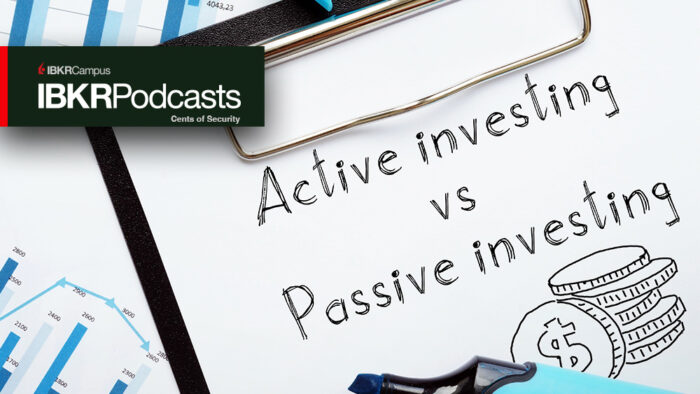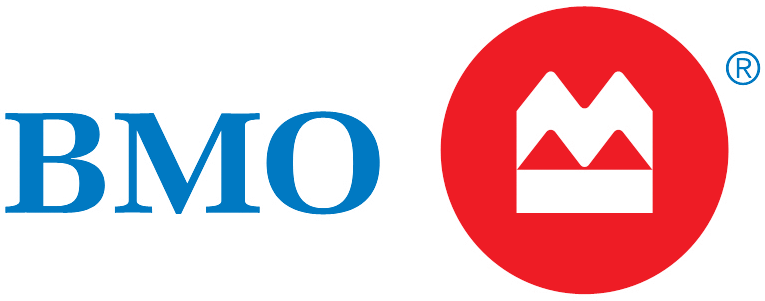We continue where we started this journey by providing you with some actionable ideas and learnings that might be helpful for your practice on the road ahead.
After five years and 136 episodes, it is time to say goodbye.In our last episode, we wanted to continue where we started this journey by providing all of you with some actionable ideas and learnings that might be helpful for your practice on the road ahead. We’ll share stories and memorable experiences with you and identify several enduring principles that our guests helped us uncover to help you shape the future that you want to create.Thank you to all of our guests and listeners for five great years. We hope that you continue to access, use, and revisit these episodes, and most importantly, put them to work to have better conversations and better outcomes in your practice, your portfolios, and your financial planning.
Click here to listen to the podcast
Transcript
Ben Jones: It’s not about the finish line, it’s about the journey. And the relationships and the conversations and laughs and tears that are shed throughout the process, that’s the valuable stuff when you take on a project like this. Welcome to Better Conversations. Better Outcomes presented by BMO Global Asset Management. I’m Ben Jones.Emily Larsen: And I’m Emily Larsen. On this show, we explore the world of wealth advising from every angle providing actionable ideas designed to improve outcomes for advisors and their clients.Disclosure: The views expressed here are those of the participants and not those of BMO Global Asset Management, its affiliates or subsidiaries.
Emily Larsen: Five years ago, we had an idea. The idea stemmed from conversations our team were having with advisors around the country. Advisors wanted access to insights we were delivering, but they wanted the information on demand. And the idea of the podcast was born.
Ben Jones: I still remember recording that first episode with Matt Smith in my living room, and it was so fun. But today I’m equally excited to be recording our very last episode with you. And I’m really excited to remember this for many years to come.
Emily Larsen: Yeah. I mean, it’s hard to believe how quickly the time is flown by. But after five years and 136 episodes and 135 guests as you alluded to Ben, it is time for us to hang up our spurs and say goodbye.
Ben Jones: In our last episode, we wanted to continue where we started this journey by providing all of you with some actionable ideas and learnings that might be helpful for your practice on the road ahead. Now, over the course of the next half hour or so, we plan to reveal, one, what we had hoped to accomplish when we created the Better Conversations. Better Outcomes podcast. Number two, share some stories and memorable experiences that we’ve had with you and many of our guests over the years. And number three, identify several enduring principles that we uncovered with the help of many guests to help you put them into action and shape the future that you want to create.
Emily Larsen: Okay Ben, are you ready to get started?
Ben Jones: I am as ready as I’ll ever be Emily.
Emily Larsen: Okay. So let’s start with me asking you a few questions just because I wasn’t around in the beginning. What was the genesis of the podcast?
Ben Jones: I still remember when we thought up the idea and how it came about. And first we had just revamped our US intermediary value proposition. And that value proposition was that better conversations result in better outcomes. And at BMO Global Asset Management, we seek to enhance our conversations with advisors and their clients through ideas, access, and ease. So we were trying to make sure that we walked the walk and could demonstrate our value proposition by action. And so I’d been noodling for a couple of weeks about how we might want to provide access to our ideas about portfolios, practice management, and financial planning in a really user friendly way. About the same time I was at an industry conference where we’d spent a lot of time and resources to have a speaker on stage, which ended up having about 75 or so advisors in attendance. And after that experience, it hit me what if we were to carve out a similar amount of time and resources and create a podcast, even if it were to only reach say the same number of people, 75 or 100, 150 advisors. If we could reach them every other week, we might be no worse off in investing those dollars and we’d be able to more easily showcase our value proposition building that relationship with trusted advisors in the marketplace. So that was really the idea, and the journey began about at that point. Now, I think what was maybe more interesting for advisors considering their own initiatives as we head into 2022, I wanted to share one anecdote that I think would be helpful. And that is that it’s one thing to have an idea, it is a totally different thing to turn that idea into an actionable strategy as you know, Emily. Now, we had had the initial idea in November of 2015 and started working through and brainstorming the concept with my first co-host Matt Smith and some of our team members like Chris Barlow and Nate Stading and others. And this started through that December timeframe. And at the end of December, we decided we really wanted to get aligned around the right content with our audience needs, our value proposition, and of course our commercial aspirations. And to do that, we needed to do some strategic planning. And so rather than just doing something to throw it at the wall and see if it worked, we took a really deliberate approach. And if you recall from some of our episodes and many of our guests who have touched on this idea of strategic planning, it starts by defining your vision of what it is you’re trying to create and doing some research on how you might go about this. And our editor Jonah and Sam, they’ll laugh about this today, but we literally didn’t even know how to record a podcast. We didn’t even know what was involved. And I certainly was, I wouldn’t say a technological neophyte, but pretty close. And so we started doing research and talking to people, how would you do this? What would you need to accomplish it? Et cetera. From there, we moved on to the second stage, which was developing a strategy. And we did this by outlining a six-page brief that included resources, definitions of success, challenges, and much, much more. And we circulated this internally across a number of stakeholder groups at the firm to get reaction and buy into the idea. And ultimately that resulted in a decision to move forward. And we decided we wanted to be able to execute really well on this. So what we did is we built a four step repeatable process for recording these episodes. And that involved creating some playbooks that we would use really still to today to guide us on how to do an episode and that involved planning an episode, producing the episode, publishing the episode, and then of course promoting the episode after. So we really then went about building a team that was committed to the success of this strategy to implement on those pieces. But the last step of strategic planning is review. And we intentionally committed only to one year, 24 episodes of the podcast. And we did decided at that point we would take a pause, review and see if it was actually a strategy worth continuing. Steve Moore touched upon strategic planning, Steve Sanduski in some of his episodes talked about the strategic planning process and getting crystal clear about your vision. And of course, Bill Whitehead talked about score carding and review being such an important and valuable aspect of a strategic planning retreat. And so we heard this reoccurring theme over and over. And I can say now sitting here five years later that this strategic plan really laid a foundation that allowed Better Conversations. Better Outcomes. And we hope, obviously audiences are the best judge, to be very successful both for our audiences in getting easy access to information on demand but also successful for BMO and our commercial aspirations as we built out that podcast. The strategic planning process can be applied to any tactic or facet of your business. And if you do it right, it will significantly improve your chances of success.
Emily Larsen: One thing that you made me think of is I heard one of our senior leaders at BMO speak recently. And she talked about writing a letter to herself that she would open three months after taking a new job. And in the letter, she would write down the things she had hoped to accomplish, but she would only reopen it three months afterwards. And if she hadn’t accomplished those goals or was disappointed with where she was at, she would decide if she needed to move on or continue. It felt very similar to what you’re talking about, it’s that last step of checking in.
Ben Jones: Yeah. I think review is often the most overlooked step of the strategic planning process. And it’s the one that requires you to be the most critical of where you are and also allows you the opportunity to celebrate some of the unexpected successes along the way.
Emily Larsen: You mentioned defining success just now as well as earlier, what were the goals of this podcast?
Ben Jones: We tried to align three things as I mentioned before. One is what were advisors looking for as far as access to ideas? And we know that those three areas were portfolios, practice management, and financial planning. And we wanted to provide an easy way for people to access those ideas. The second thing we really worked to align towards was our commercial aspirations. We’re not just doing this for fun to put out a lot of great content because Emily and Matt and Ben like talking into microphones in their basements, but actually wanted to generate some real opportunities and lead generation and deepen our relationships with the trusted advisor community. And then the third and I think not to be overlooked piece of this is that we wanted to make sure that we connected the community of financial planning. So we didn’t want it to be all about BMO, we wanted to bring in a lot of experts and explore the world of wealth from every angle talking to the real experts not just pretending to be one.
Emily Larsen: And did you have any expectations in terms of how this would be absorbed by the public, by the advisor audience you were hoping to appeal to?
Ben Jones: Honestly, we didn’t know what to expect. The average age of a person listening to a podcast at the time was 25 to 35, which is not the same demographic as to what we were trying to market to, which the average age of a financial advisor was around 59. So I think we, as I mentioned before, had this idea that if we could reach 150 or so trusted advisors we’d be money and resources ahead of where we were doing the traditional in-person approach. And I do want to add, this was pre-digital. So my reference for these things was literally a conference presentation because this was pre-digital marketing at the time, early days I would say for podcasting in financial services. We wanted to reinforce our brand and our value proposition. And to do that, we also wanted to make sure that people knew we were a global organization. And so if you remember early on in the episodes, we actually would say where we were recording the episode just to reinforce, hey, we’re not just in downtown Chicago, we’re all over the globe, pretty large organization. And then of course we wanted to increase our overall traffic to our website so that we could develop marketing qualified leads or new opportunities with advisors, and of course sales qualified leads or opportunities. And so increasing that foot traffic to the website was really important. Those were the ways that we were going to measure success. And like I said, looking back now, I think knowing what we know about digital marketing, this could have been a lot more robust and certainly would’ve set the bar significantly higher than we did.
Emily Larsen: And while you had those on paper for the organization, I’ve known you long enough to know that you have your own personal set of goals. Did you have some feelings about inside what you wanted to accomplish, either they were stretch goals or just additional things that you really wanted to provide the listener that was more intrinsic?
Ben Jones: For me, my personal goal in hosting the podcast really stemmed from the commercial need that we had to create a brand and a trusted brand with financial advisors. And so personally my aspiration was one just to make sure that we were representing BMO’s brand in the way that we wanted to in the marketplace. But number two was to make sure that I represented my own thoughts and feelings in addition to the guests in a way that I think showcased some of the thoughtfulness that I put into things and sometimes the attention to detail that my wife teases me about.
Emily Larsen: And so if I recall these goals were quickly met and exceeded.
Ben Jones: Yeah. As a result of being really blessed right out of the gate with so many amazing guests that were gracious enough to say yes without even hearing a single episode just knowing that if we were going to do it, we were going to do it right. I’m always going to feel deeply endeared to all of our amazing guests, but particularly some of those ones right at the start that just put their trust in us, that we would create a high quality program and represent their thoughts with intellectual integrity in the marketplace. I’ll always remember that. So the one thing that’s that clear to me is that there is demand for content that is done well and has actual insights as long as you share that with consistency. And so to your point, yeah, we exceeded our goals right out of the door, surprised ourselves a bit at both the breadth of folks listening and the response from advisors in the marketplace and their willingness to share. There were some interesting things that came up, I’m sure we’ll get into those later. But this isn’t something that I expected right away. And to have so many unique downloads even on our very first episode was surprising. But then I think what’s more surprising now looking back is here we are five years later, and that very first episode still gets new, fresh downloads every single week.
Emily Larsen: And part of that was one of the things that I know was a goal was relative to some of these topics, we wanted to create evergreen content that would almost forever be valuable in terms of the principles. And I think that’s what we’re going to talk about today is the enduring principles that will live beyond the specific topics or the specific rules that exist today in this industry. So beyond these downloads exceeding your expectations, did your expectations align with reality?
Ben Jones: I think the one thing that you learn is that even when you have a really well thought out plan when you’re entering somewhat new territory, you can’t possibly expect some of the things that will occur. And so here we are five years later, if I looked what we were laying out to do over 24 episodes in one year, I don’t think I could have predicted or expected what actually happened. For example, one of the first things that surprised me Emily was, I mentioned that demographic mismatch earlier, but we actually had to build an instruction sheet that showed an advisor how to download a podcast because the average advisor never had listened to a podcast.
Emily Larsen: I remember that some of our representatives would say they spent more time talking about how to download a podcast and how to find our podcast than the actual content at the onset.
Ben Jones: So that was a big surprise to me and obviously showed how big of a mismatch that demographic was. I mean, we’ve come a long way in five years. I think everybody is familiar with podcasts and how to access them today. But that was one of the first things out of gate that really blew me away.
Emily Larsen: What else?
Ben Jones: Well, as I mentioned, I didn’t expect to blow through our unique download numbers in just a few episodes. And today with thousands of advisors who have tuned in across 93 different countries, I’m still surprised at the relevance of the content in so many different places. I mean, some of the top places that we get downloads today still surprises me, Brazil, South Africa, France. They’re definitely not what I would’ve thought of as the top regions for our content outside of US, Canada, UK, and Australia. I didn’t expect to see some of these other countries so high up on the top country list.
Emily Larsen: I know you had said that one of the goals was also to drive traffic to the website, how did that turn out? Did that align with the expectations or reach the goals?
Ben Jones: We wanted to provide access to the information, obviously audio access. But we wanted to provide the resources to advisors for each of those episodes where they could access the tools and workbooks and everything to have those better conversations with their clients. And so not surprisingly, we put the show notes up on our website where people could access that information. And I think at one point, I’d have to go back and look at the exact number, but I know at one point over 70% of our web traffic was related to the podcast. So it was a big volume of uptick in people coming to the website and learning more about BMO and how to have better conversations.
Emily Larsen: Well, that had to be exciting news to report internally, but I know one of-
Ben Jones: I think for our digital team it was really exciting.
Emily Larsen: I know one of the other things you hinted that you were excited about is the guests and your interactions with them. I know they came from all over the world too.
Ben Jones: I loved our guests, and they were so gracious with their time. The other thing that was really fun that I didn’t expect was how engaged the audience would be. And the engagement that came from the audience as far as, you know Emily, we’ve got emails into Better Conversations all the time. But so many people would send in ideas for new shows. And that was my favorite thing was to get the engagement with both our guests but also with the audience reacting to it. And not something that I expected, but it became one of my favorite things every week was to get those random emails from a listener.
Emily Larsen: Well, you brought this up earlier in the conversation that we used to at the onset of each episode mention where you were recording the episode. So I’m going to ask you where was your favorite place that you recorded an episode, and who was it with?
Ben Jones: By far my favorite recording memories of places that I got to meet guests was when I met them in their own environment. And so being able to do interviews in over 52 different locations over the last five years, I got to see a lot of different environments. And it was wonderful to go meet guests in those locations. Probably one of my earliest and favorite memories was with Jack Kramer who was one of those early guests who agreed to come on the show without even hearing about it and offer his advice. And we actually recorded that episode on his basement couch, which was an absolute riot and just will be a memory that I remember for a long time.
Jack Cramer: Whatever you think your message is right now, it isn’t. Someone else holds the keys to your compelling message.
Emily Larsen: Besides Jack Cramer’s couch, were there other locations that were slightly more exotic that you were able to record episodes in?
Ben Jones: I do remember distinctly, and I really enjoyed recording the episodes. We did record a couple of different episodes in London at Exchange House. And that was really neat to be able to be over there in the heart of the financial district in London and interviewing guests like Ben Apfel on MIFID II.Ben Apfel: We are recording in what is called the European room in Exchange House, the headquarters of BMO Global Asset Management in EMEA.Ben Jones: We’re in London, England on a beautiful, cloudy, rainy day.Ben Apfel: That’s exactly what you would expect.Ben Jones: The other one that, when I was thinking about this Emily that I really enjoyed, we actually recorded two episodes in the same day with the same guests in First Canadian Place in Toronto. And we recorded two episodes with Dr. Amy D’Aprix, and it probably is one of my favorite episodes still to this day. And that was the episode that we recorded with Dr. Amy on family conversations that should not be avoided. I remember Dr. Amy coming into this dark cavernous room in First Canadian Place because we wanted good sound quality and no echoes. And we laughed and recorded the episode and had great conversation and shared a lot of our own family experiences. And that was a really neat experience.Emily Larsen: You found the only dark room in First Canadian Place.Ben Jones: I know, right.Emily Larsen: And I think that episode is one of our most downloaded. Not only is it one of your favorites, but most downloaded probably because of the content is so impactful.
Ben Jones: The content is great, and it’s applicable for advisors but also for advisors to share with their clients. And I myself have actually shared it with a lot of people that aren’t even in this industry who are going through similar family situations. And so yeah, the content is timeless, evergreen, and really valuable.
Dr. Amy D’Aprix: I think you have an opportunity to, I always say gently wake people up. And I feel like that’s sort of my role at this stage of my life is to gently tap people on the shoulder and say, hey, you know what I know, is there are things that if you talk about you are going to have a richer life and the people you love are going to have a richer, more harmonious life.
Emily Larsen: On my side of the coin Ben, I’m going to tell you I haven’t been to quite as many places, but by far my favorite place that I’ve recorded an episode was last year’s best of that I recorded in my kitchen. And the reason that was my favorite, you guys were all on this call. And behind me is a bank of windows, and I saw my husband doing yard chores that I had asked to him to do earlier in the day. So not only were we getting a great episode in, but I was watching the progress in the background. And that was the best episode ever.
Ben Jones: So you’re saying you like watching other people do the work you’ve asked them to do?
Emily Larsen: No, no. I like it when the honey do list gets done, let’s be clear.
Ben Jones: Wonderful. Well, Emily, I am curious, we’ve had a lot of amazing guests that have joined the show, but I’m curious from your perspective what was your favorite topic or favorite guest that you interviewed?
Emily Larsen: This won’t surprise you, it may surprise our guests. But our diversity episode, fostering a diverse and inclusive culture with Fellicia Foster was my favorite. It’s a topic that’s near and dear to my heart. I’ve been involved in a lot of initiatives around it at our organization and beyond. But what Fellicia did was really shine a light on how the concepts can live in an advisor’s world. And also, I thought she gave really practical tips for how to start moving the needle on this topic and making a difference on a daily basis with your employees and with your clients. And ultimately she said this is a business conversation, this is something that in order to thrive customers want to work with an advisor who they have connections with. And sometimes those connections are different than do they live in the same community as me, but do they look like me? And I thought that was a really powerful observation from her that I just hadn’t heard before.
Fellicia Foster: Understand that diversity and inclusion goes so much further than being the right thing to do. But if we don’t get it right, we’re going to miss the mark on the logical and revenue generating thing to do.
Ben Jones: Yeah, no, that was a wonderful episode. And I still remember we recorded that episode and the timing of when that episode released happened to coincide with a lot of current events that wasn’t done intentionally when we recorded it but ended up being a really powerful way to put BMO’s message out into the marketplace.
Emily Larsen: What about you Ben? I know you mentioned Dr. Amy’s episode, but anything else?
Ben Jones: One other guest who has become one of my favorite people to have conversations with is Steve Sanduski. And I didn’t know Steve personally prior to BCBO but he was one of our first guests that joined the show, and we became fast friends. I really admire the way that he thinks about the world and about our business. And in particular, our episode last year on coaching clients through uncertainty was really enjoyable and timely. I think that was a real actionable conversation. And Steve in particular I think was really early on the pandemic’s impact on clients and communication, far ahead of many other people who still couldn’t even spell COVID in February of 2020.
Steve Sanduski: The fact is you got to take care of your team. And I know this is a heavy load for the advisor because not only is the advisor stressed out with what’s going on. But for everything the advisor is going through, each person on your team is going through their own personal situations and this environment is affecting each of them in different ways. So it’s absolutely critical that the advisor makes sure that they’re taking just as good of care of their team as they are of their clients.
Emily Larsen: Are there any other guests that you wanted to call out in terms of their contributions or their resonance with our listenership?
Ben Jones: Well, I think if you gave me long enough, I could probably work my way through all 135 guests who have joined the show and shared their insights because I’ve thoroughly enjoyed all of those conversations. I will say there were a couple of firsts for the show that I think were really interesting. First of all, interviewing a Congressman.
Emily Larsen: We’re joined by Congressman Mike Kelly of Pennsylvania’s 16th District who is also a member of the United States House committee on ways and means.
Mike Kelly: The job is not the way I think a lot of people perceive it to be. It’s a great job, it’s a great job. It’s a hard job to get, it’s a hard job to keep. There’s 705,687 people who look to us to represent their best interest, so that’s what we try to do.
Ben Jones: And then I think the other fun thing that we really celebrated was our 100th episode. And Michael Kitces was nice enough to join us for that 100th episode and dive really deep into financial planning software like only Michael can.
Michael Kitces: You can’t be the personal trainer that says, well, I’m going to go do all the reps on the machine, and then I’ll let you know how it turned out. That doesn’t help anyone get to their weight loss goals. You have to show them how to do it well, but they have to do it, you can’t do it for them. And I think we’re getting the same place in the planning world. And it’s not that having all the technical knowledge isn’t valuable, but that ain’t enough. At some point if you want the person to get healthier and exercise more, you want the client to get better on track with their finances, they have to be engaged with the process and you have to be helping them to do it and get there.
Emily Larsen: Yeah, that was a fun episode. Besides those guys, I also wanted to call out that we’ve had a number of repeat guests. Topping the list with Steve Moore, eight episodes from our beginning. Those are all great and talk about evergreen content. Steve Sanduski was on with us three times as well as our own Scott Kimball and Jon Adams and Dr. Amy who we’ve talked about today. And then we’ve had a number of people who’ve come back for two episodes, which were Sarano Kelley, Peter Stahl, Janelle Woodward, Derek Sasveld, and Carl Richards who was great too.
Ben Jones: It’s funny as you walked through all these names, like I said, I could go through every single guest who’s joined the show and share not only some great memories but also just amazing tips and ideas that they put together. And maybe one day we’ll put all those ideas together on a post for someone.
Emily Larsen: Well, speaking of some of those memories, you’re giggling. So I’m guessing there are some funny ones, anything you can share with the audience?
Ben Jones: Well, maybe the most ironic and entertaining memory that I have was I was recording an episode with Jason Barnaby from Firestarters. And literally in the middle of the episode the fire alarm went off in the BMO building when I was talking to the guy about igniting your fire within. Not only could you not have scripted that to happen, it was really ironic and a little bit annoying and that we only had about an hour and a half together and had to evacuate the building.
Jason Barnaby: They have the opportunity because of what they’re talking about people’s…
Ben Jones: You got to be kidding me.
Emily Larsen: I do remember recording a lot of episodes in Chicago and having to stop talking while the fire sirens from the fire trucks are going outside the window and then having to restart up again. So I hear that, but that one sounds pretty adventurous.
Ben Jones: What about you, any memorable moments for you?
Emily Larsen: For me, less of a funny moment, but more of a powerful takeaway was, I think it was one of my first guest interviews with Julia Peloso-Barnes who focuses on LGBTQ practice and serving those clients. And when I asked her what it feels like to get it right in serving those clients, she got emotional. And you could tell she was so passionate about doing what she did and helping her community. I was really moved by it, and I don’t think I’ll ever forget the moment, it’s so genuine.
Julia Peloso-Barnes: It’s funny, this wave of emotion suggests that I’ve hit on a truth. We’re just like everybody, we want the same things everybody else wants, but we may need a little more help in figuring out the path.
Ben Jones: I love watching Julia’s posts on social media, she does so much for that community. And it’s such an inspiration to see how involved she is.
Emily Larsen: So you did mention earlier Ben, I’m going to transition to one other topic is listener feedback. I know a lot of things have come to you, some things have come across my desk for sure, but certainly more across yours. Is there anything you’d want to share from that feedback from any of the episodes that’s interesting?
Ben Jones: For any listeners who have listened for a long time, we actually changed the outro about the time you and I started co-hosting. And we actually changed it to we love listener feedback because it was so true and so accurate. And it probably was my favorite thing when a listener would reach out to us and suggest a topic that they would like us to cover. And I think for example the diversity episode that you mentioned was a direct suggestion from a listener. The Peter Stahl episode on HSA accounts was a direct referral from a listener.
Peter Stahl: I have twin boys, I have five children, but I have twin boys. Last summer, they had to have their wisdom teeth out. The eight teeth get extracted, the bill shows up, it’s $5,200. So I’ve got a choice to make, do I pull that out of my HSA or do I find the funds elsewhere in my cashflow? So I did the later, I paid the 5,200 out of pocket. What’s interesting Ben is I now can take $5,200 out of my HSA at any point income tax free next month next year or 15 years from now, when I’m in my upper 60s and retired and looking for tax free income.
Ben Jones: John Anderson came who talked through different fee constructs for advisors, he was also a referral from a listener.
John Anderson: So the more an advisor can focus on what the real value add is in my mind, the less they’re going to have a problem with regard to fees down the road. But if I tie my whole value towards an investment return, if the thing that I deliver the most is an investment return, and that investment return is down and I’m over paying for it in the client’s eyes, again, I think that’s gonna be a huge problem for a lot of these advisors.
Ben Jones: I know we’ve been reminiscing a little bit, and I’m not sure how valuable at times that really is for listeners. But one of the reasons that I think we wanted to share some of these stories is that oftentimes it’s easy when you start out on a journey to set the commercial metrics or the numbers. And we get really lost in measuring our success in a metric driven or relative to others comparative type model. But I would say sharing all these memories with you has really been a great reminder for me and I hope is an enduring principle that advisors can take away from this. It’s not about the finish line, it’s about the journey. And the relationships and the soft metrics and the conversations and laughs and tears that are shed throughout the process, that’s the valuable stuff when you take on a project like this.
Emily Larsen: And so as this journey comes to a close, Ben, what would you share with listeners that you think they should pack in their suitcase and take with them into the future?
Ben Jones: Man, I have three things that I think came about loud and clear throughout the course of Better Conversations. Better Outcomes. from many different angles in which we explored the role of a financial advisor in their practice, their portfolios, and their planning. Number one, and that is that for advisors oftentimes the most valuable advice that they can deliver to their clients lies squarely at the intersection of money and emotions. And one of our early guests on the show was Carl Richards, and he graciously agreed to join the show as one of our early guests before we’d even had an episode proof to share with him, he committed. And I think he was episode 11. But during that episode, he said something, made a comment and it rang so true. And it was really about what we were trying to do for advisors. And that ultimately turned into a line that we plagiarized or borrowed from him, we’ll say. And that was that better conversations lie at the intersection of money and emotions.
Carl Richards: Once you realize that your job isn’t to ask people 17 questions and plug them into a portfolio or find exactly the right life insurance. What really matters is the intersection between all that stuff and this messy thing we call life. And so I don’t even know how we separate the stuff we call life from money decisions, they’re unbelievably intertwined.
Ben Jones: Now, we had guest after guests touch on emotional topics like divorce, death, marriage, life transitions. And all of them articulated this immense amount of value that you can provide your clients when they’re going through these transitions where their emotions are running high, and there’s oftentimes a lot of money in motion. And so these intersections provide a unique opportunity for advisors both today. And that will continue to be true for advisors in my opinion for years and years to come. The enduring principle number one is that at the heart of your practice you should be addressing the messy intersection of money and emotions for your clients and their life transitions.
Emily Larsen: I mean, these are complex topics that don’t have one right answer. So you could have the same transitional topic happening with a client, but it doesn’t mean the right next step applies across the board of your clients. So really being there for that particular client in that particular case is critical.
Ben Jones: Couldn’t agree more. And I think it’s an incredibly valuable thing that we get to work in an industry where the answers aren’t always binary black and white but gradient for each individual client and their particular desires.
Emily Larsen: And some of these issues are daunting from the client’s perspective, they’re not subject matter experts. So an advisor’s commitment to the field and their practice and living in that messy place is actually not only resulting in better outcomes for that particular client but can also impact that client’s family for generations to come. What is the next enduring principle?
Ben Jones: So the next enduring principle is something that I’m going to call be awesome versus be complacent. And this be awesome phrase became my number one sign-off during the course of Better Conversation. Better Outcomes. I use it all the time. Part of the reason is that be awesome is I hope you’re doing well, but it also is a reminder that you should be awesome. And that’s the way I like to think about it. So I use that as an email sign-off, I use it in letters. I’ve used it in the newsletter since we started it. And one of the reasons that I use it so often is because it’s something that I learned throughout the course of the episodes of Better Conversations. Better Outcomes. My daughter, to use a little bit of analogy, my daughter’s a swimmer. And oftentimes when the coach is trying to teach her something, she will say something like, “I already know how to do that good,” or, “dad, I already know how to do that.” So now every time that I take her to swimming on the way to swimming, I remind her that good is the enemy of great. And that that statement is really what be awesome is all about. The same principle is true for financial advisors. Being good at something is very different than being great at something. And for advisors, the challenge that we identified throughout the course of Better Conversations. Better Outcomes is not allowing yourself to get complacent in your practice. It’s so easy to get 30, 40 clients and run your service model and your system and manage the portfolios and forget about the idea of upping your game. Whether that’s upping your service levels, your client experience, improving the portfolios, learning new techs or planning principles. There are so many different ways that you can apply yourself to be great in this business every single day. And that is the thing that I would leave you with. And that is that advisors do amazing work. And in order to continue to do amazing work and have amazing results, you cannot allow yourself to get complacent. At the point in which this doesn’t interest you anymore maybe is not something that you should be doing because it is so exciting to help people and do great work for people. You need to ask yourself every day, what can I be doing better? Ask your clients, ask your peers, ask your team. These are the seeds for good ideas that will take your practice to the next level. And I think at times your results will surprise yourself by doing some of these things to make yourself better.
Emily Larsen: So rather than saying this enduring principle is don’t be complacent, we’re saying it’s be awesome. And there’s a lot wrapped up in that. It’s being curious, it’s a positive spin on don’t be complacent. It’s challenging yourself on a daily basis and evolving over time. It’s so much wrapped up in being awesome.
Ben Jones: Curiosity is a great example. Like I said, they are so many different things every day you could wake up and get excited about in this business. I don’t know how anyone would feel like it gets boring.
Emily Larsen: And so Ben, I know you had a final enduring principle that you wanted to share with the listeners.
Ben Jones: Yeah. I think the last thing that I think that I’ve taken away from Better Conversation over the years is advisors need to think about their ability to be agile. The ability to adapt quickly in what tends to be an ever-changing environment is going to become more and more imperative for advisors as they think about their practices and their clients’ needs, et cetera. I mean, just think in the last year we transitioned to digital first communication overnight. We just this week got new tax proposals that came out that changed the retirement landscape for many Americans. The investment solutions are continuing to evolve, some for the better, some not. Rules, regulations, technology, all of these things require you to quickly adapt to that environment. And while we’re in an industry that tends to move at a glacial pace at times, a lot of each of the underlying components of financial advice move quite quickly. And so I tell this to my daughter who’s in school, there’s a difference between memorizing the answers and learning how to learn. And if you’re an advisor and you want to be really successful in this business, you need to learn how to learn. You have to systemize a process for learning and being agile. You have to be willing to try new things and experiment and take risks so that you can fail fast, but not take big enough risks so that they’re fatal enough that you can’t continue to evolve and play the game. And then learn from those things and repeat. Be curious about the people that you serve, the planning strategies that you employ, the portfolios that you’re creating, and the strategies that you employ for your business. I think being curious, being willing to take those risks, being agile in the way that you adapt to the changes in the marketplace, it is going to be an exciting decade for financial advice Emily.
Emily Larsen: I love it Ben. I know one of the other things that you have talked about is the importance of who you surround yourself with, who the advisors have on their team as they evolve their practices and their business. I would be remiss as we round out this final episode without talking about our team and who we’ve surrounded ourselves with throughout this period.
Ben Jones: You’re right. And for advisors, the lesson here is that you got to surround yourself with a team because that will greatly enhance your chance of success. Now, the first group of people that we have to thank right out the get-go for five amazing years here at Better Conversations. Better Outcomes is our amazing guests. I want to thank the, for the guidance that they provided us and the advisors that listen to the show, the inspiration that they provided me on an ongoing basis in addition to just the listeners and their flexibility as we worked through all of the fun of compliance and back office items. Created a lot of great memories and really thankful for them all to come along on this journey.
Emily Larsen: Absolutely. I learned something new every single episode, even if it was something, I thought I had known a little bit about previously. It was really fun to speak to experts on the matter. I think there’s some other people we would love to acknowledge as well, our support team that has helped us throughout all the nitty gritty backend stuff in terms of supporting this podcast. And that is not only our sales team who talks about this, they’re engaged with the podcast, engaged with their advisor customers and then bringing feedback to us. They were fantastic.
Ben Jones: I think you’re right Emily. The regional teams were constant source of suggestions, creativity, and encouragement. And we definitely couldn’t have done it without the support of all of our regional associates.
Emily Larsen: And also our editors and producers at Puddle Creative, Sam, Annie, and Jonah. Jonah has been with us from the beginning when it was Freedom Podcast. We really appreciate your expertise, I mentioned earlier your patience with us and really making us and our guests sound as intelligent as we can. And we also appreciate your holiday bloopers that you would send us, those made for lots of laughs at the end of the year.
Ben Jones: Yes. I’m still so glad that those bloopers never made it to the light of day, but maybe we’ll put one at the end of this episode.
Emily Larsen: I can see an evil look on Sam’s face right now just thinking of which one to put in there. And then we also had a really strong internal team. So Pat Bordak has been one of our support partners internally, and she really keeps the process going. Ben mentioned at the beginning of the episode the process we had, the playbooks that we put in place to support each episode. Pat makes sure we’re on task and on target, and it really leads us to a better outcome with her supporting the initiative.
Ben Jones: Not to mention, Pat has become an expert on compliance. She really was the person who worked through a number of different back office compliance approvals with all of our guests and different regulators in different countries and jurisdictions. So Pat really was an amazing part of keeping the show on time and available to our adviser audience.
Emily Larsen: And speaking of making it available to our advisor audience, we still have to thank Derek Devereaux. He’s from our marketing team, and he really is the man behind getting the podcast to you. So he works with the website, he does all the show notes. And he’s been a wonderful support, always enthusiastic. Even if we just give him all kinds of ideas, he turns them into reality.
Ben Jones: So true. And Emily, I personally would be remised if I didn’t thank you for being such a wonderful co-host and friend throughout this project because I still remember the day I asked you if you would be willing to co-host the podcast with me and the look of terror and hesitancy on your face. And I’m so glad that you took this journey with me, I genuinely think that the show has been better as a result of your presence.
Emily Larsen: Thank you, Ben. I have to thank you as well for taking the lead and showing me the ropes and also believing in me when I didn’t believe in myself. As you’ve just heard, I wear what I’m feeling on my face, and Ben saw it. But through this process, I have learned how important it is to stay curious. And so that is the one thing that I’ll take as an enduring principle through all this. A lot of the topics I discussed with guests were things that I didn’t know much about at all. And so what I found key to having successful conversations and being able to really get great content for our listeners was being curious, genuinely curious. And I think that led to a lot of great episodes.
Ben Jones: Excellent. Well, the last group, Emily, that I believe deserves the biggest thank you of them all is for all of you listening to the show who have joined us on the Better Conversation. Better Outcomes. journey over the last five years. We hope that you continue to access, use, and revisit these episodes, and most importantly, put them to work for your practice. Have better conversations with your practice, your portfolios, and your financial planning. For those of you who want to continue to stay in touch, please, you can reach me at Ben D. Jones on LinkedIn, and feel free to follow me there and share your ideas. I’d love to hear about some of your favorite episodes as well. Now, for the podcast, you can access the podcast ongoing and revisit those episodes on the podcast player of your choice.
Emily Larsen: From all of us here at BMO, goodbye. The future is yours to create.
Ben Jones: Thank you for listening to Better Conversations. Better Outcomes. This podcast is presented by BMO Global Asset Management. To access the resources discussed in today’s show, please visit us at www.bmogam.com/betterconversations. Our podcast and resources are supported by a very talented team of dedicated professionals at BMO, including Pat Bordak, Derek Devereaux. The show is edited and produced by Jonah Geil-Neufeld and Sam Peers Nitzberg of Puddle Creative. These are the real people that make the show happen. I’m Ben Jones.
Emily Larsen: And I’m Emily Larsen. From all of us at BMO Global Asset Management, hoping you have a productive and wonderful week.
Disclosure: The views expressed here are those of the participants and not those of BMO Global Asset Management, it’s affiliates or subsidiaries. This is not intended to serve as a complete analysis of every material facts regarding any company, industry, strategy or security. This presentation may contain forward looking statements. Investors are cautioned not to place undue reliance on such statements as actual results could vary. This presentation is for general information purposes only and does not constitute investment, legal or tax advice and is not intended as an endorsement of any specific investment product, security or service. Individual investors are to consult with an investment, legal and/or tax professional about their personal situation. Past performance is not indicative of future results. BMO Global Asset Management is the brand name for various affiliated entities of BMO Financial Group that provide investment management and trust and custody services. BMO Financial Group is a service mark with Bank of Montreal. Further information can be found at www.bmogam.com.
Ben Jones: You should have been an anchor.
Emily Larsen: And I haven’t had any coffee, so all this is just genuine Emily.
Ben Jones: Because the coffee, caffeinated version on genuine.
—
Originally Posted in October 2021 – Four Enduring Principles for The Road Ahead
Disclosure: BMO Global Asset Management
This website is for informational purposes only and is not intended to provide a complete description of BMO Global Asset Management’s products or services. Past performance is not indicative of future results. It should not be construed as investment advice or relied upon in making an investment decision. Information on this website does not constitute an offer for products or services, or a solicitation of an offer in any jurisdiction in which such solicitation or offer would be unlawful. Products and services can only be offered by appropriate representatives of the respective manager. Notice to residents of the United Kingdom: For the avoidance of any doubt, the information on this website does not constitute an offer for products or services to persons in the United Kingdom.
BMO Asset Management Corp. is the investment adviser to the BMO Funds. BMO Funds are distributed by Foreside Financial Services, LLC.
All investments involve risk, including the loss of principal.
Foreign investing involves special risks due to factors such as increased volatility, currency fluctuation and political uncertainties.
Investors should carefully consider the investment objectives, risks, charges and expenses of the BMO Funds. This and other important information is contained in the prospectuses and/or summary prospectuses, which can be obtained by calling 1-800-236-3863. Please read carefully before investing.
BMO Global Asset Management is the brand name for various affiliated entities of BMO Financial Group that provide investment management and trust and custody services. Certain of the products and services offered under the brand name BMO Global Asset Management are designed specifically for various categories of investors in a number of different countries and regions and may not be available to all investors. Products and services are only offered to such investors in those countries and regions in accordance with applicable laws and regulations. BMO Financial Group is a service mark of Bank of Montreal (BMO).
BMO Asset Management U.S. consists of BMO Asset Management Corp., BMO Asset Management (Canada)® includes BMO Asset Management Inc.
BMO Taft-Hartley Services and BMO Trust and Custody Services are a part of BMO Global Asset Management and a division of BMO Harris Bank N.A., offering products and services through various affiliated entities of BMO Financial Group.
Investment advisory services in the United States are provided by BMO Asset Management Corp., BMO Asset Management Limited, LGM Investments Limited, BMO Global Asset Management (Asia) Limited, Pyrford International Ltd and Taplin, Canida & Habacht, LLC.
Investment advisory services in Canada are provided by BMO Asset Management Inc., BMO Asset Management Corp., LGM Investments Limited, BMO Global Asset Management (Asia) Limited and Pyrford International Ltd.
Financial promotions in the United Kingdom are provided by LGM Investments Limited, Pyrford International Ltd, and BMO Asset Management Limited. LGM Investments Limited, Pyrford International Ltd, and BMO Asset Management Limited are authorized and regulated by the Financial Conduct Authority in the United Kingdom.
Asset management services in Hong Kong are provided by BMO Global Asset Management (Asia) Limited, licensed by the Securities and Futures Commission to conduct regulated activity Type 9 – asset management under the Securities and Futures Ordinance.
Please read the Privacy Policy and Legal Disclosures reached through links above for important information.
Investment products are: Not a Deposit — Not FDIC Insured — No Bank Guarantee — May Lose Value.
Copyright © 2021. BMO Financial Corp. All Rights Reserved.
TM/® Trade-marks/registered trade-marks of Bank of Montreal, used under license.
Disclosure: Interactive Brokers
Information posted on IBKR Campus that is provided by third-parties does NOT constitute a recommendation that you should contract for the services of that third party. Third-party participants who contribute to IBKR Campus are independent of Interactive Brokers and Interactive Brokers does not make any representations or warranties concerning the services offered, their past or future performance, or the accuracy of the information provided by the third party. Past performance is no guarantee of future results.
This material is from BMO Global Asset Management and is being posted with its permission. The views expressed in this material are solely those of the author and/or BMO Global Asset Management and Interactive Brokers is not endorsing or recommending any investment or trading discussed in the material. This material is not and should not be construed as an offer to buy or sell any security. It should not be construed as research or investment advice or a recommendation to buy, sell or hold any security or commodity. This material does not and is not intended to take into account the particular financial conditions, investment objectives or requirements of individual customers. Before acting on this material, you should consider whether it is suitable for your particular circumstances and, as necessary, seek professional advice.




























